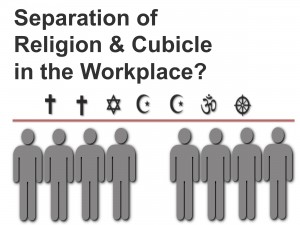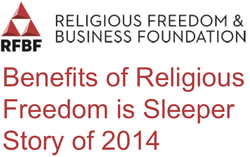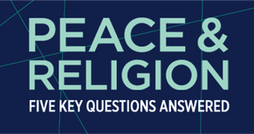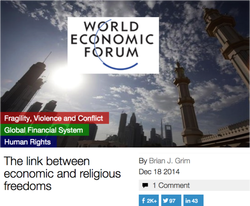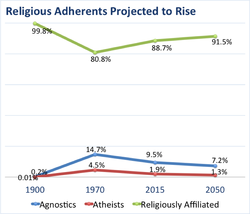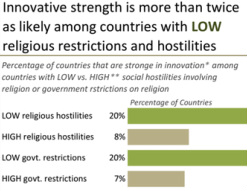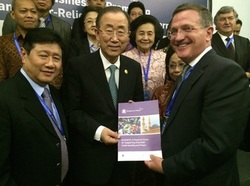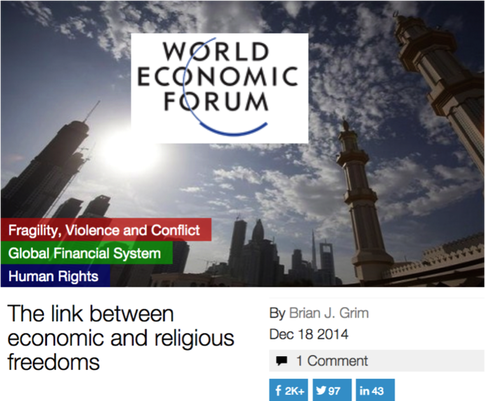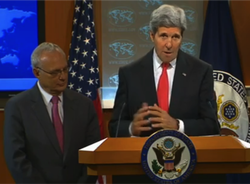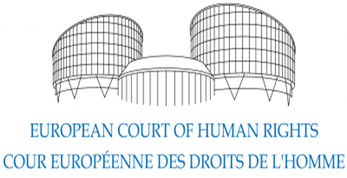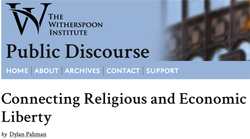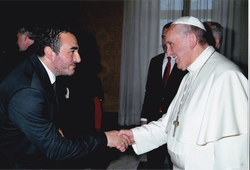The
European Court of Human Rights (ECtHR) is the preeminent legal voice on the protection of human rights in Europe (not just the European Union). Its resolutions serve as an important guide to the different European legal systems. It is therefore important to understand how it protects (or does not protect) freedom of religion or belief in the workplace.
The Court acts as the “guardian” of the European Convention on Human Rights (ECHR), passed by the Council of Europe in 1950 to promote and protect these rights in all its member states. Article 9 of the Convention protects religious freedom, referring to its content in paragraph 1 and its limits in paragraph 2:
1. Everyone has the right to freedom of thought, conscience and religion; this right includes freedom to change his religion or belief and freedom, either alone or in community with others and in public or private, to manifest his religion or belief, in worship, teaching, practice and observance.
2. Freedom to manifest one’s religion or beliefs shall be subject only to such limitations as are prescribed by law and are necessary in a democratic society in the interests of public safety, for the protection of public order, health or morals, or for the protection of the rights and freedoms of others.
Religious freedom involves the right to have a religion or beliefs and the right to express them. The internal liberty is absolute but its external manifestation is subject to some limits that must meet nevertheless certain requirements: they must be set by law and necessary to protect public safety, order, health or morals, or to guarantee the rights and freedoms of others. The role of the ECtHR is a three-step check:
· A sincere religious practice is being exercised (step 1),
· That exercise has been restricted (step 2), and
· That restriction is legally justified, that is, it fulfills the terms of Article 9.2 ECHR (step 3).
In court cases involving Jews, Christians and Muslims, the Court, and the European Commission of Human Rights (ECmHR) that, until 1998, examined the admissibility of applications submitted to the ECtHR, has consistently ruled in favor of the employer versus the employee seeking to practice his or her faith. Five cases show these difficulties:
In the first case, X. v. the United Kingdom (Commission decision of 12 March 1981), a Muslim primary school teacher at the London education system asked for permission to be absent for about 45 minutes on Fridays, in order to pray at a mosque. The headmaster allowed the absence, however the headmasters at the next schools he works at do not do the same. They iIn fact, the Education Authority finally forced him to resign. The ECmHR held that there had not been interference with the teacher’s religious freedom because he “remained free to resign if and when he found that his teaching obligations conflicted with his religious duties” (par. 14).
In Konttinen v. Finland (Commission decision of 3 December 1996), the claimant is a Seventh-day Adventist Church State Railways’ employee. Per his faith, he can’t work on the Sabbath, Saturday, which begins at sunset on Friday. And so, he left work early 5 times a year when the sun set before his shift ended. The company fired him. The ECmHR held that “…having found his working hours to conflict with his religious convictions, the applicant was free to relinquish his post”, adding that he “…was not dismissed because of his religious convictions but for having refused to respect his working hours” (point of law 2, par. 12).
In the third case, Stedman v. the United Kingdom (Commission decision of 9 April 1997), a travel agency’s assistant manager was required to work on Sundays. After some months, she refused to continue working on Sundays because, as a Christian, it’s a day dedicated to non-commercial, family and religious activities. As a consequence, she was dismissed. The ECmHR reiterated that she was free to resign and she “…was dismissed for failing to agree to work certain hours rather than her religious beliefs as such…” (point of law 1, par. 5).
In Kosteski v. The Former Yugoslav Republic of Macedonia (judgment of 13 April 2006), the plaintiff worked for the electricity public company of Macedonia. He was absent from work on two Muslim holidays. The company fined him, as he didn’t prove his Muslim faith. The ECtHR supported the employer’s arguments (par. 39), and so did not consider the viability of an accommodation of his religious needs.
In the most recent case, Francesco Sessa v. Italy (judgment of 3 April 2012), concerning a Jewish lawyer, who was the counsel for a plaintiff in a criminal proceeding, the judge set the a hearing on a day coinciding with a Jewish holiday, and rejected his application for a later date, asserting that under the Code of Criminal Procedure, the counsel’s presence was optional. The ECtHR held that there was no interference with the right to religious freedom because the lawyer “…could have arranged to be replaced at the hearing in question…”. And, added, in any case, an interference would be justified on the protection of the public’s right to the proper administration of justice (par. 38).
Three of the seven ECtHR’s judges disagreed. In their dissent, they argued that the Code of Criminal Procedure gives the plaintiff the option to attend the hearing and only the plaintiff can decide whether to take advantage of it. And, a reasonable accommodation of religious freedom was possible without compromising the proper administration of justice: the plaintiff had addressed his need well in advance (par. 10). Because the authorities neither tried that adjustment nor proved its potential damage, there was a violation of religious freedom (par. 15).
As evidenced by these decisions, there is an apparent indifference by the ECtHR toward workers’ religious freedom. The Court supports the employers who do not accommodate the religious needs of their workers, even when an adjustment was not economically disadvantageous. The Court has declared that there was no interference with religious freedom exercise because the employees were “free to resign” (or they could be replaced -in Sessa– or didn’t even show enough evidence of being manifesting their faith -in Kosteski-). Since the ECtHR rejected that, according to Article 9.2 ECHR, there was a limitation (step 2), it does not even enter to value whether it was justified (step 3).
It appears more appropriate to study each situation individually and admit that if the employee’s religious expression conflicts with the work schedule, there is a restriction on his or her right to religious liberty (step 2). Then, it should be checked if this restriction has a legal basis and is really necessary (proportionate) to protect any of the legal interests mentioned in Article 9.2 ECHR – public safety, health, morals or order, or rights and freedoms of others – (step 3). With regards to labor, the most likely impact would be the entrepreneurial freedom – for private companies – or the interest of the general population – in the public sector. It would be about finding balance between the two positions. The ECtHR has followed this reasoning regarding other protected rights for a long time, and yet has failed to do so with respect to religious freedom seeming to have no validity in the workplace, as we have just seen.
Nevertheless, a change of approach is detected in the ECtHR case law. In the last two cases, the Court has at least accepted the appeal and ruled on the merits. And in Sessa v. Italy, the three dissenting judges were in favor of an adequate analysis of this kind of issue and a reasonable accommodation of religious freedom at the workplace. As we observed in a subsequent deceision about religious symbols, this progress continues in Eweida and others v. the United Kingdom of 15 January 2013, which could confirm that the ECtHR’s previous indifference toward employees’ religious freedom may be changing.

